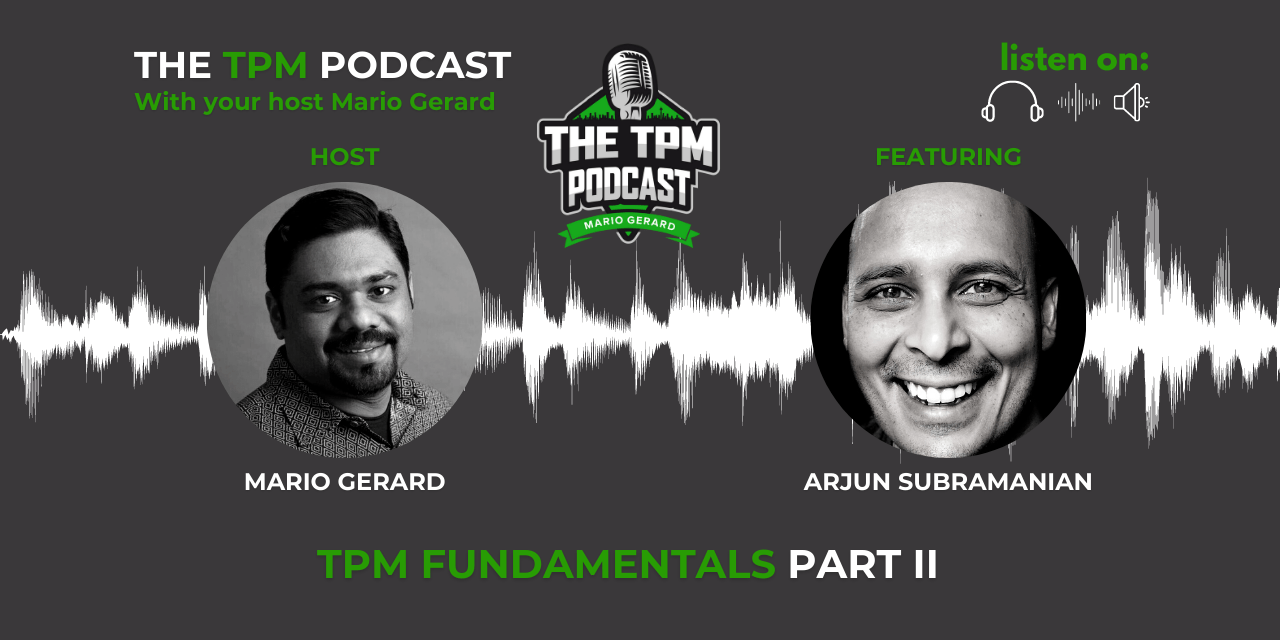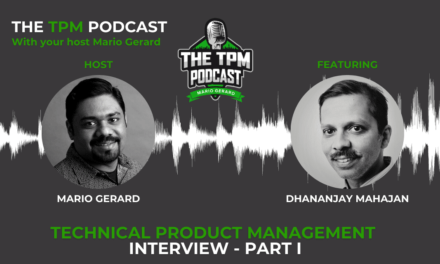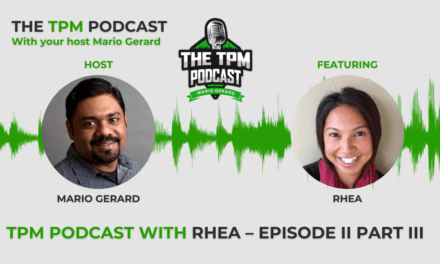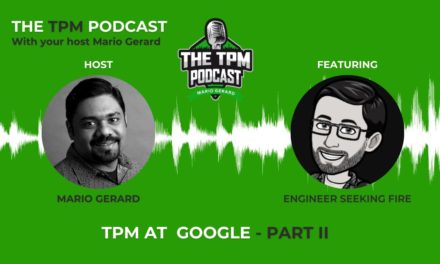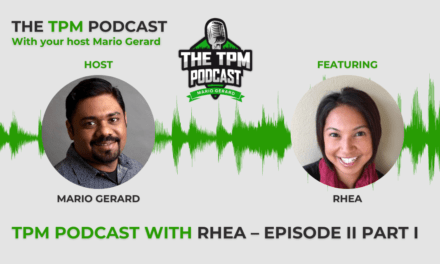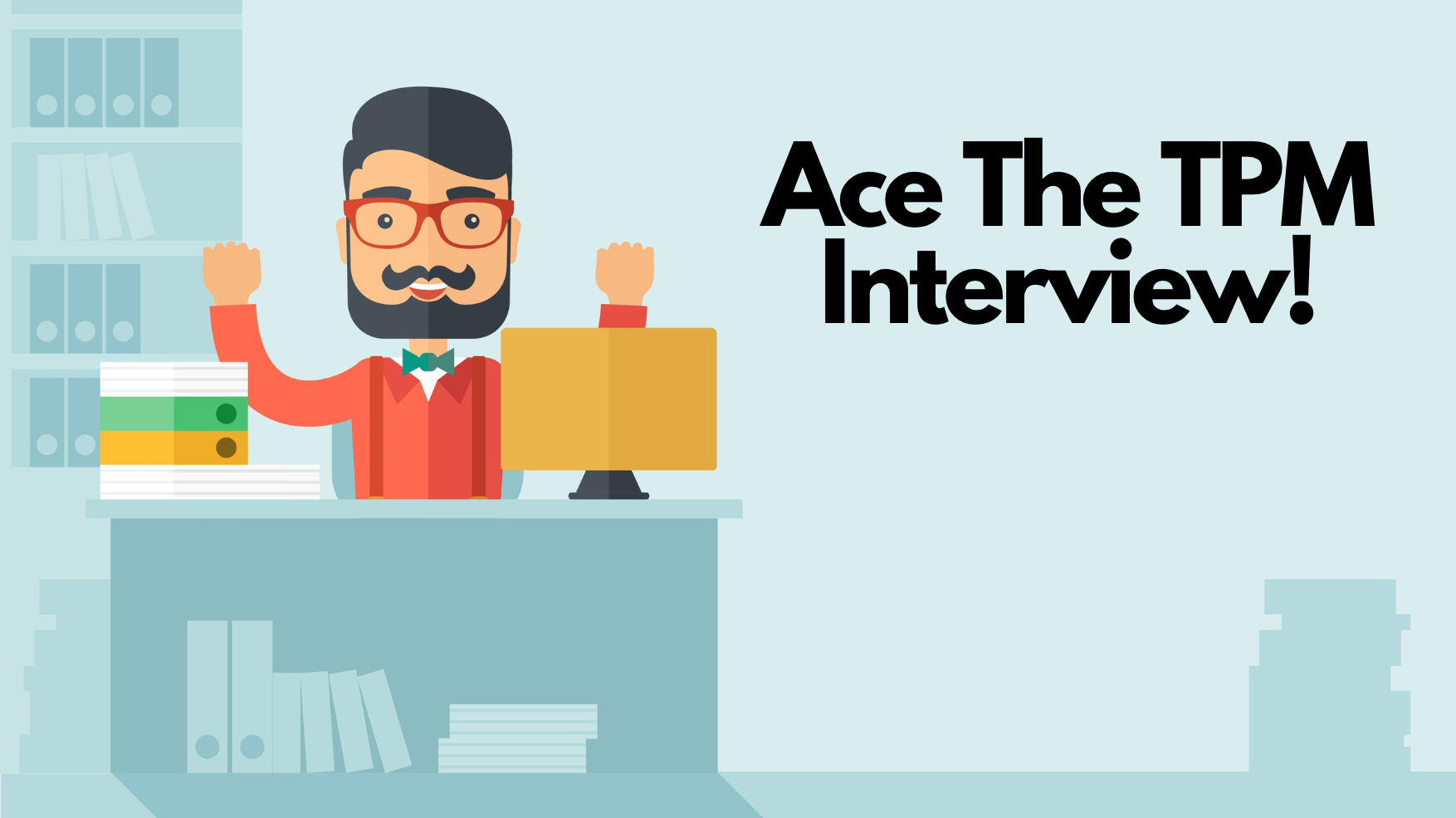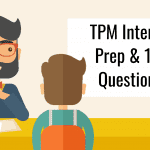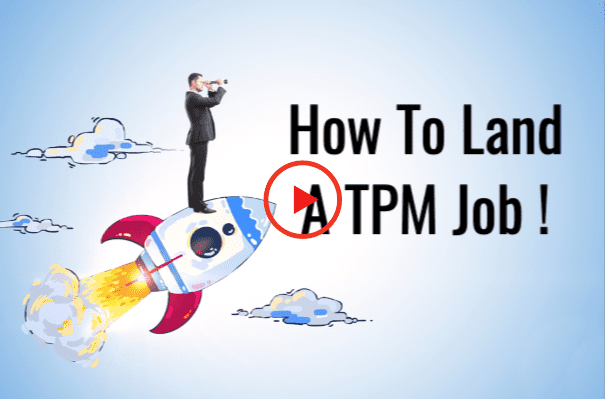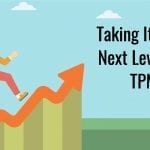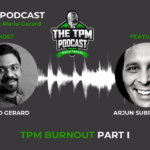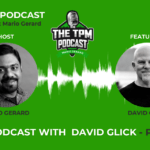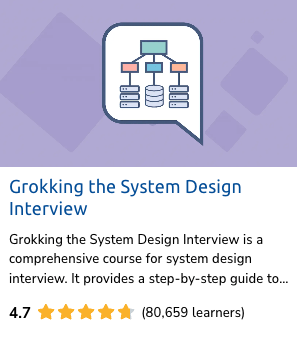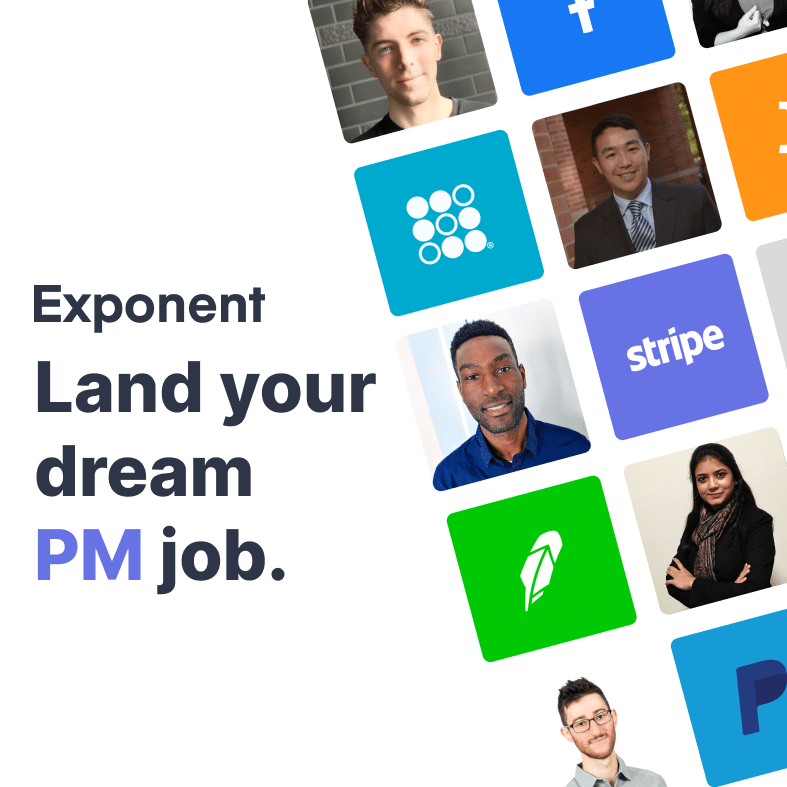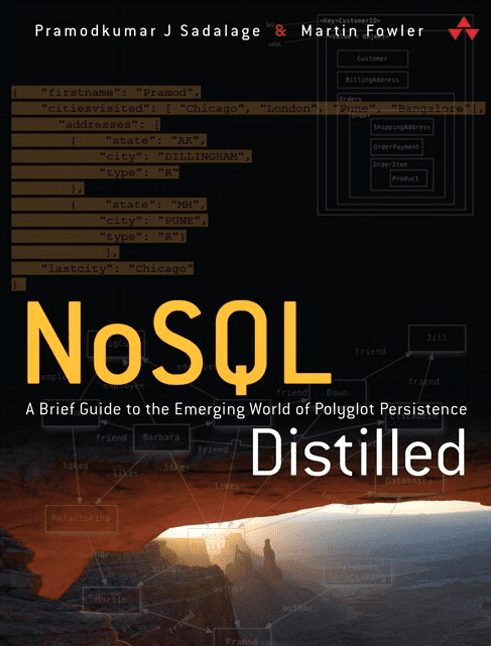Last updated on August 9th, 2024 at 09:55 am
Podcast: Play in new window | Download | Embed
Hello, and welcome to the TPM podcast with your host, Mario Gerard. This is part two of the podcast with Arjun Subramaniam. If you haven’t listened to part one, do go back and listen to that first, because this is going to be a progression of that. Thank you so much for listening and hope you enjoy it.
Listen to Part 1 of TPM Fundamentals Podcast series
Other Episodes from the series
Mario Gerard: What made you kind of move from the TPM role to the product role?
Arjun Subramaniam: So a lot of this was just my own process of self-discovery. Of what I wanted. I really loved the business side of building. I enjoyed understanding the business dynamic. I just loved working with the non-technical stakeholders as much as I enjoyed working with the technical stakeholders.
And then as I looked at like all the cool stuff happening around AWS, and there’s this entire type of product management, that was a, a technical product management role, like, you know, where you could really grow up in. And that, that was like my choice of based on my fists, on how I wanted to kind of go. And so I also decided, you know, just going back to the original point, I really wanted ownership of the frontier space, like owning the actual, you know, part definition, the business strategy being able to go build that. And so I really enjoyed that. So that’s how I took my career.
It was in hindsight, I actually were wish I’d done it sooner. But, you know, we all go walk the path of discovery, right. Like, you know, we have to go figure this out for ourselves, but it’s been a really positive thing for me. If people are like, hesitant about following their instincts, I almost always, you know, think, you know, you can’t go wrong with it. Like, you know, we should give it a chance. I mean, following your instincts where that takes you.
I think that in some respects, like, because most TPMS don’t do that. There’s not as much of a blazed trail I hesitated from going down that road. But eventually I did. And I feel like it’s been a positive thing for me.
Mario Gerard: Yeah. So TPMS, generally a lot of them transition to engineering managers at some point, if they want of go down that route, but move to product is a little, I seen little fewer people actually moving from TPM to product. So it’s not a very common path forward, but it’s nice to see that you did that and you’ve kind of enjoyed that journey.
Arjun Subramaniam: Yeah, absolutely.
Evaluating the technical aspects of a TPM
Mario Gerard: So coming back, like how do you evaluate the technical aspects of a TPM since, as you were saying, right, you were a bar raiser at Amazon, what’s your yardstick of how do you measure that.
Arjun Subramaniam: So I want to kind of maybe describe this yardstick with, let’s look at some kind of from building block skills for TPMs. So before you even get to the kind of the technical skills. Which itself is a kind of a basket of skills. The first thing that I’m really assessing is am I looking at a candidate based on the data in their responses. This is really important. All right.
Based on what they’re telling me in the interview, am I looking at someone who is a pristinely clear thinker, the logical thought process, structured thinking, and analytical capabilities should just bleed from their responses. That means that I’m really attuned to looking for people where there’s very clear causality. There’s structure in their responses.
They’re able to not just say that they had an experience, you know, they tell me a time type interview questions, but they’re able to organize their experiences in really structured blocks, they have a mental model for how they see the world. And they’re able to express that to you and able to sustain questioning.
Mario Gerard: I see what you’re saying. It’s like a mind map.
Speaker 3;: Yes. I need to know that you are a clear analytical thinker. Yeah. That’s the first thing. If I can’t do that. None of this other stuff matter. And I really believe in behavioral interviewing after having done hundreds and hundreds and hundreds of loops, not just for TPMS, but for across the board and across company. I really, really believe in behavioral interviewing because it is actually a test of both the interviewee, like the candidate and the interviewer.
The most important thing being it anchors the interview on the candidate’s context. As opposed to my context. Okay. So let me repeat that. Okay. Behavioral interviewing is very different than, you know, problem solving puzzle solving type questions. Because it gives the candidate an opportunity to own the context of the interview. Okay. Because by definition, you are talking of about your experiences. And it puts the onus on the interviewer, To be an effective assessor of your skills in the situation you are in.
Let’s talk about those blocks. That clarity of thinking, right? It’s not sufficient just to have experiences. A lot of people will say, well, I manage this per I did this, I did that. But then if you really just sit down with them and you’re like, okay, as a practitioner, I want you to paint for me What the hardest challenges were, who were the customers? What were the problems? What was the hard part about the problems. And what was your part of it?
Very quickly you’ll see Unraveling. And you’ll see like one type of candidate come out really ahead, really fast. And this candidate typically has a structured response. They don’t just answer the question. What they first do is they tell you how they’re going to answer the question. They paint for you, the situation, the blocks, they paint for you, the constraints. And they tell you, given these constraints, given these blocks, given this particular dynamic, this is what I knew. These were the facts. These were the problems. And this is how I went about solving them.
Now this is powerful because it’s a widely apple. I could take this person who’s a clear thinker and I could put them in a different situation and they’d be able to succeed. Because what they’ve demonstrated in that situation is a generalized understanding how problem solving works.
Mario Gerard: And how they can articulate hard situations and hard problems.
Arjun Subramaniam: That’s the first thing. Okay. The second thing is I also look for certain temperamental qualities in TPMS and active listening is one of them. Active listening is very, very different than passive listening. Active listening is you are getting information to understand, not getting information to respond. So in the interview, for example, right. If you ask a clarifying question and the candidate just blows right by it, or doesn’t answer the question, that’s not a good sign. Because if you are in a setting with a stakeholder, what you’re really doing is destroying trust because you’re not listening to that person.
Setting aside, whether you agree with them or don’t agree with them or what you, that doesn’t matter. The active listening part is listening to understand, just understand the other person.
Arjun Subramaniam: So that’s tested in the interview. That’s the second piece. Okay. The third piece is being able to take subtle cues.
This is really important because if you are this orchestration problem solver, right. And you have all of these like consensus building issues across organizations, which you will, if you go to an Oracle, you go to an Amazon or apple, whatever. You have really, really smart opinionated stakeholders and you got to be able to listen to cues.
Mario Gerard: And every stakeholder has something they care about. Which is not what you care about. Right. Right. And you have to go to build consensus all the time.
Arjun Subramaniam: Building consensus is a, in order to build consensus, you can’t build consensus, which is like more like a top level block. But the skill underneath consensus is you’ve got to be able to actively listen. And you got to be able to listen and pick up on cues.
So in the interview, for example, if you give them some feedback about how you don’t agree with how they solved something. And there’s defensiveness. Yeah. That’s a really good example how they might react in the real world situation. It’s really important to understand that a lot of this stuff is just practice, but it’s also in the real world, you don’t have to practice for the interview.
If you just practice these things while you’re out and about, I don’t know if anybody will tell you, That being a better active listener, doesn’t make you a better person. Being able to pick up on subtle cues, It just makes you a better person. It’s just pay attention. And care and genuinely care. Like really care about what the other person, like same thing with problem solving.
Forget about the fact that you want to be at TPM. What if life through a particularly hard problem at you? Don’t you want to have deep body of generalized problem solving skills. That help you. So it’s just, it’s just, the good news is just practice. But that’s the foundation.
The foundation is just like really strong block and tackle of what it means to be an analytical, empathetic problem solver. Like that’s the foundation. If you don’t have that, just doesn’t matter how technical you are. Yeah. No one will care.
On top of that, Now let’s get to the tech part. If you do all this stuff, there’s a damn good chance that if you are in the real world, you’re probably going to learn the tech stuff. Even if you are not very good at it today, but the way to assess it is actually just put them in an engineering team in engineering problem solving context. And most of the time, what I’ve seen is people that is the foundational blocks. They’ll usually have some kind of technical sophistication.
They’ll at least ask the right questions. But they’re not going to bump. This is just a rule of thumb from what I’ve seen. Okay. But usually what will happen is you, this is why in Amazon, we have like a technical interviewer, like someone in that whose job it is like, they’ll tell you, Hey, look, I’m going to give you a complex architectural problem. I want you to kind of help me understand how you’d go about solving it.
If you’re doing the things that I just told you, where you have like a structured thought process, your problem solving with the constraints in mind. Yeah. You’re thinking about the customer. You’re laying this out.
You may have some spectrum, like maybe like an amazingly technical person may give you a very sophisticated design proposal. And then someone who’s reasonably technical might not have such a sophisticated answer. Yeah. But you’ll be able to figure this out.
So anyway, I think that’s the way to go about it. And like, if you think about optionality of human talent and human capital, and you put yourself in the perspective of a company that’s growing really fast, a software company that grow fast and complexity is just exploding, exploding. You just cannot hire someone for who they are in a specific point in time. You just can’t.
You have, have to have some data. Yeah. That shows you that they’re flexible. They’re adaptable. They have the cognitive framework and the, the curiosity and all that stuff. Yeah. That’s going to help them swim.
Mario Gerard: In any type of water that you throw at them.
Arjun Subramaniam: You need that. Yeah.
Mario Gerard: And I think that’s why like companies like Amazon, not Amazon, I think Google, Facebook, all nowadays, they just interview you for a TPM role. And then you go for a team match After that, because ideally you are able to handle any of these teams or work in any organization within, you know, the larger Facebook or met or whatever you call it. So you have all those skills that enable you to go and swim anywhere within the organization and be successful at it.
Arjun Subramaniam: Yeah, that’s right. I mean, who would’ve thought 10 years ago, if you had a TPM and you said, well, I’m going to hire this person because they’re really good at like building web applications. And then now Amazon has supply chain optimization. It’s a completely different world. Probably going to be bigger than ups and FedEx.
And you hired someone who’s this person who won’t grow past that [12:26 inaudible]. They’re not shaped. They’ll never go past that shape. Maybe that’s okay. But what you really want is you can’t have everybody like that. You need to have talent that can grow. And also they can kind of like shape shift, adapt. Like no matter which situation they’re in. And I think for many roles, especially for the TPM role, the assessment bar has to be majority that.
Because the adaptability, the adaptability, the generalized thinking problem solving, dive deep, being credible with engineers. If you think about critical thinking as just like, you know, Tesla and Elon Musk really kind of pound on this, this idea that you have to understand something from first principles. First principles, understanding.
There’s nothing about this method of thinking that is to me technical or non-technical, it’s just a way of thinking. If you know how to do this and you practice it every day, you get better at it. You can go in any situation and you can apply it. You can apply it in the kitchen if you’re making lasagna. Or you can go apply it in distribute systems. It’s a general purpose kit For understanding how the world works.
Tips For TPMs
Mario Gerard: Yeah. Well, that’s, that’s really interesting how you put it. Once you’re on the job, do you have any tip for like TPMS, like what they can do to improve their skills or to do better at work or something like that? TPMS, product managers I think they’re fairly similar. What would be your like five things to keep a watch out for, to do as you’re off the job.
Arjun Subramaniam: One thing that people need to understand your job is not the work. If you go ask someone, even this conversation that they’re having right now, you’re told that, you know, your job is a TPM. Your job is the product manager. And what you just asked me was what do I do every day? And my answer is you have to understand there’s a difference between the job and the work. All right. Okay. So if I’m a to TPM or a product manager, what have you, but that’s not the work that I do every day.
What is it? And the answer is your work is actually a set of skills that you have to practice every day. It is literally something you deconstruct into a set of skills and it’s something you have to practice every day. You can’t change that depending on whether your project went well or didn’t go well, you had a good day or a bad day. You can’t change that because your boss changed. There’s a definition that you create for yourself about what is the set of skills I’m developing right now. And that’s not the job description. It’s actually just the work you got to do every day.
Practically speaking, consensus building is a skill. Yeah. Critical thinking. First principles thinking is a skill. The work is really just practice that stuff every day. And most of it is actually not. If you just sit down and go, like, you might have an opportunity to practice like just one skill a day. And it might just be actually for like 30 minutes, like you might have one on one or a meeting, right. Where you have to practice active listening to the nines.
Like you have to be like, so tuned in to everything in that room that you’re picking up on all the subtle cues, you understand where every stakeholder stands on this. Sometimes it’s just that, but it’s just about accepting that that’s the work. And you just, if you do that work every day, there’s a basket of skills that make you super effective that you get to build on. And then you just get better at them over time.
And no one can deconstruct the job to the work except you, you got to do that. You got to do it for yourself. That’s the process, which I think a lot of people misses. They look, you know, I know a lot of people that will look to like career guides or they’ll look to like leveling guide or like they’ll look to like, and there’s nothing wrong, by the way, these are all good artifacts. But about 90% of the value comes from the reflective process of figuring out what is the work you got to do.
You got to figure that out and you just have to do it. And you can’t do everything in a year. You can’t do everything in a day. So you got to battles. Yeah. You know, you could just listen to your stakeholders and be like, wow. Like I’m getting a ton of feedback that says I can’t convince people of anything. So that’s just you having to practice that.
Break it down. Like consciously, and you got to practice it. And again and this is why I really look for the clarity of thinking and the analytical skill because someone who’s thinking analytically about something will naturally deconstruct feedback. Like if someone gives you feedback, right. One way to react to it is to be like defensive or whatever.
But another way to react to it, be like, okay, I’m going to break this down. What can I do? What’s the situation. What happened in that situation? What specific skill If I had had in that situation could have done better. Now let’s go and kind of rep that, right? It’s like, it’s just like lifting weights or like doing deadlifts or something like that. Your form has to be spot on.
Skills needed to be a TPM?
Mario Gerard: And I think you need to be consciously, cognitively trying to practice that skill. Don’t like just do it unconsciously. Like, okay, you are going to a place where you need to negotiate or you need to build consensus. So what are the skills I need to have to do that? What’s my strategy around that and how am I going to attack this situation? And be like very conscious of these things that you need to do and practice those skills again and again.
Arjun Subramaniam: Oh yeah. I can’t agree enough about this with you, the process of just setting the intention before going to a meeting, right? Before going somewhere, or even starting your day, just setting the intention, your head is like, my intention today is to just get better at this thing. Yeah. Like I’m going to go practice this one thing. It just flips some kind of bit in your head. Yeah. And all you got to do is that one thing that day.
Mario Gerard: It could be a hundred other things that you’re doing, but consciously I’m going to put my heart and soul and I’m going to think this through how I’m going to solve this. And I think that itself changes so much in how you’re going to deal with that situation.
Arjun Subramaniam: Yeah, yeah, yeah. Yeah. And the other daily thing that’s important, I think, is not being super siloed in the ways you consume information. Okay. So for example, like a lot, you know, like it’s easy to get into a world where you believe that only information you need to be good at your job is technical documentations, email, what your boss tells you and meeting notes, you could live in that world. Okay. There’s nothing wrong with those things, by the way, you should do all those things.
But it’s really important to have a diverse information diet, because part of the way creative problem solving will works is you need to be able to draw inspiration from different variety of kind of like information diet. You can’t get all your nutrition from those things, from those things. You just can’t, there’s no pill like that.
So for example, and this is, you know, speaking of intention, right. And thought like intentionally doing something, you got to intentionally diversify your information diet.
Mario Gerard: That just at work you’re talking about? Or is it like within the work environment or even in general personal life as well?
Arjun Subramaniam: Yeah, like many things, I actually think this just makes you a better person, but I definitely think the best, most creative problem solvers I’ve seen in these environments are people that are diverse in way they draw knowledge from. And I think that you have to decide what that is. So for example, like I just read a lot, like, so I like to read a lot of books and I read like across a wide spectrum and not all of it I know is going to be useful.
I just read it cause it’s interesting. And it allows my brain to pattern match. And I think that diversity of information improves your ability to think creatively and problem solve. And it lets you draw inspiration from people in domains. Like you might realize that like, you know, Hey, like, you know, Victor Frankel had a really important thing to say about like how to deal with like some situation that you might experience at work. It’s just completely different, right? Like you can draw from variety of sources to improve your situation, not just in life, but also just get better at what you do your craft.
Mario Gerard: Got it. That’s a good tidbit information. So I think we’ve kind of covered the first section of what we want to talk about. We spoke about TPMS. We spoke with product managers, we spoke about the role. We little bit touched a little bit about leadership principles, how candidates need to present themselves, logical thinking and so much more. I think. So this is a good wrap up of this conversation I’m having with Arjun on technical program managers, product managers and program managers.
Stay tuned for our next episode, probably where we are going to talk more about burnout. Arjun thanks for joining us today. We’ll do the next episode on burnout. Thanks.
If you enjoy that, definitely share it with your friends, colleagues. It really helps and do subscribe to the podcast. Thank you so much. I hope you enjoy listening to that, see you on the other side.

